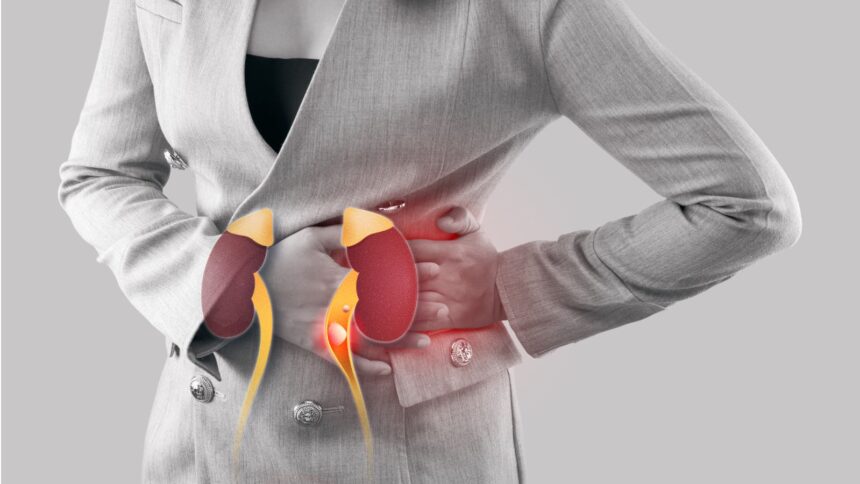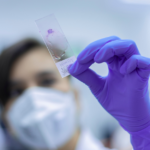On World Kidney Day 2025, key experts are addressing common questions about kidney disease, providing insight into the causes, risk factors, symptoms and potential complications associated with this condition.
Kidney disease may not be something we often think about it, but it is actually one of the leading causes of death around the world. According to the National Kidney Foundation, millions of people suffer from chronic kidney disease (CKD) worldwide, killing their lives every year. The main task of the kidneys is to remove toxins and excess water from the blood. It also helps to control blood pressure and keep your bones strong. When they are damaged, they are unable to properly perform these jobs, leading to kidney disease. In fact, if you have diabetes or high blood pressure, you are more likely to develop kidney problems. Additionally, if kidney disease progresses in failure, treatment such as dialysis or transplant may be required. If you want to know more about kidney disease, there is an answer from the top nephrologists in India.
Frequently Asked Questions about Kidney Disease
On World Kidney Day 2025, HealthSchott interviewed Dr. Bharatshah, a nephrologist with over 30 years of experience. He answered some of the most common questions about kidney disease and helped him to better understand kidney health and how it works.
Question 1: Approximately 9 in 10 adults with kidney disease don’t even know that. So, what are the common signs that might refer to kidney disease?
Dr. Bharat Shah: Kidney disease often does not show symptoms at the early stage, so many people don’t know about it. However, if the disease is progressing or is not properly managed, you may notice symptoms such as:
- Weight loss and loss of appetite for unknown reasons
- Swelling of ankles, feet or hands due to moisture retention
- shortness of breath
- Continuous fatigue
- Blood in your urine
- You need to urinate frequently, especially at night.
- Difficulty in sleep
- Itchy skin
- Muscle convulsions
- Feeling nausea or illness
- headache
- Erectile dysfunction in men
Early diagnosis helps prevent the disease from worsening, so it is important to carry out regular tests. If you notice any of these symptoms, consult your doctor for a further evaluation.

Question 2: Kidney disease is one of the leading causes of death worldwide. So, what is the most common cause?
Dr. Bharat Shah: that’s right. Kidney disease is a major health concern, according to the World Health Organization. The most common causes are long-term diabetes and uncontrolled hypertension, especially if these conditions have not been treated for years. Other causes include conditions such as glomerulonephritis (inflammation of the kidney filtering unit), kidney stones, drug-induced kidney damage, and renal cysts. Over time, these conditions can lead to chronic kidney disease (CKD), and ultimately renal failure. Poor lifestyle choices, such as unhealthy diet, lack of exercise, and smoking, can also increase your risk of developing kidney problems.
Question 3: Who is at risk for chronic kidney disease (CKD) and what are some complications?
Dr. Bharat Shah: Several factors increase the risk of CKD. CKD can increase if you have a family history of diabetes, hypertension, heart disease, or kidney problems. Additionally, obesity, smoking, or following an unhealthy diet can also increase your risk. Age is another factor. As you get older, the risk increases. If the kidneys are not functioning properly, it can lead to complications such as anemia, weak bones, fluid retention, gout, heart disease, and high blood pressure. Early management of these risk factors can help reduce the likelihood of developing CKD and its complications.
Question 4: What are the different types and causes of kidney disease?
Dr. Bharat Shah: The kidneys play an important role in removing waste and excess fluid from our blood. So we cannot live without them. There are several types of kidney disease, each with different causes and effects. Some of the most common include:
- Chronic Kidney Disease (CKD): A long-term condition in which the kidneys gradually lose their function.
- Kidney stones: Hard deposits that form in the kidneys and can cause severe pain.
- Glomerulonephritis: Inflammation of the kidney filtration unit that can affect kidney function.
- Polycystic kidney disease: A genetic condition in which fluid-filled cysts grow in the kidneys.
- Urinary tract infection (UTIS): An infection that can spread to the kidneys if left untreated.
- Kidney failure: The kidneys are completely inoperable and require dialysis or transplantation.
Question 5: How can diabetes damage the kidneys?
Dr. Bharat Shah: Diabetes is actually the main cause of kidney disease. According to the National Institute of Diabetes and Gastrointestinal Diseases and Kidney Diseases, approximately three adults with diabetes develop kidney problems. Insufficient blood glucose levels in diabetes damage small blood vessels in the kidneys, making it difficult to filter waste. Over time, this damage can lead to a condition called diabetic nephropathy, and the kidneys lose their ability to function slowly and properly. If diabetes is not managed properly, it can progress to kidney failure and may require treatment such as dialysis or kidney transplantation.
Question 6: What is the risk of untreated kidney disease?
Dr. Bharat Shah: If not treated, it can lead to kidney failure. This requires treatment such as dialysis or transplantation. But that doesn’t stop. Handling kidney problems can also increase the risk of other serious conditions, such as cardiovascular disease, hypertension, and even worsening diabetes. The key to managing kidney disease is early detection and regular monitoring. This helps prevent complications and helps the kidneys function as much as possible.
Question 7. What types of tests can help diagnose kidney disease?
Dr. Bharat Shah: The difficult thing about kidney disease is that kidney disease often does not have any significant symptoms in the early stages, so they do not realize they have it until they have already progressed. This is why regular testing is extremely important, especially when risk is high due to factors such as diabetes, hypertension, or family history of kidney problems. To diagnose kidney disease, doctors usually use blood tests, such as serum creatinine tests, to see how well your kidneys are working. Urine tests can also be useful in searching for protein or blood in the urine, which is a sign of kidney damage. Additionally, imaging tests such as ultrasound and CT scans allow doctors to closely examine kidney health and abnormalities.

Question 8. What happens if my kidneys don’t function?
Dr. Bharat Shah: Renal failure, or end-stage renal disease (ESRD), is a serious condition that occurs when the kidneys are unable to filter waste, remove excess fluid, or effectively balance the body’s electrolytes. When this occurs, toxins can accumulate in the body, causing symptoms such as swelling, fatigue, shortness of breath, and confusion. Renal failure also increases the risk of heart disease and stroke. According to the National Kidney Foundation, other complications that can result from renal failure include:
- Anemia (low red blood cell count)
- Metabolic acidosis (acid imbalance in the blood)
- Mineral and bone disorders (may affect bones and heart)
- Hyperkalemia (high levels of potassium in the blood)
If kidney failure occurs, there are two main treatment options. Dialysis helps to artificially filter blood. Or a kidney transplant in which healthy kidneys from a donor are transplanted into the body.
Question 9: One in 10 people are affected by chronic kidney disease (CKD), with millions of people dead from there every year. Is it possible to prevent kidney disease?
Dr. Bharat Shah: Yes, kidney disease is often prevented or at least slowed down its progression. The key is to manage conditions like diabetes and hypertension, maintain activity, eat kidney-friendly foods, and avoid smoking. Here are some tips you can follow to prevent CKD:
- Lose weight if you are overweight or obese.
- Regular exercise helps to control blood sugar levels, so stay active.
- If you smoke, quitting is one of the best things you can do for your kidney health.
- Take the medication prescribed as directed.
- Keep your cholesterol levels down.
- Focus on reducing your salt intake and eating more fruits and vegetables.
- Limit alcohol consumption as it can raise blood pressure.
- Make sure you get a shot of flu every year. People with CKD are at a higher risk of severe flu complications.
- These small changes can make a huge difference in kidney health over time.
Question 10. What is a kidney-friendly diet?
Dr. Bharat Shah: A kidney-friendly diet focuses on foods that reduce the burden on the kidneys. This includes low-sodium, low-protein, and low-potasium foods. Vegetables such as cauliflower, peppers and cabbage, as well as fruits such as apples, berries and grapes are great options. Whole grains like oats and quinoa provide fiber without overwhelming the kidneys. Avoid high-sodium foods such as processed snacks and canned soups, and reduce protein intake, especially from animal sources.
Take care of your kidneys and overall health, now that you have the answers to all the important questions about kidney disease.











